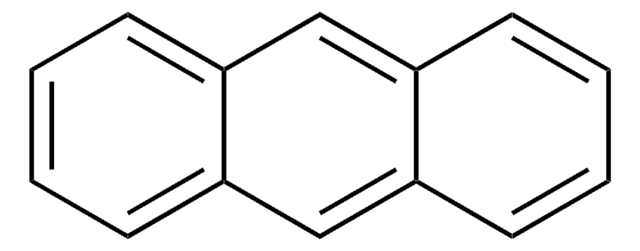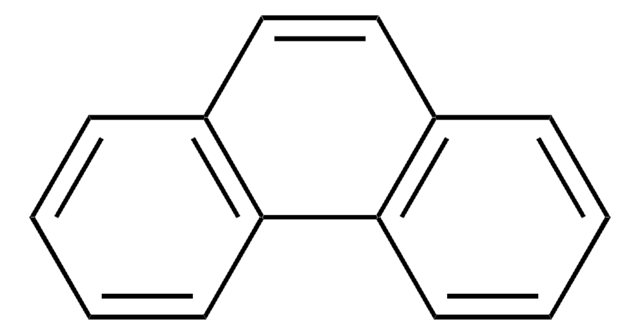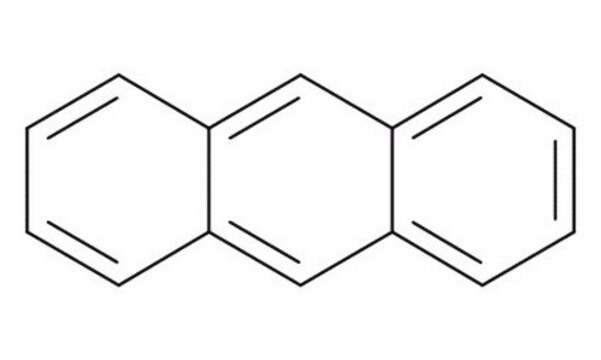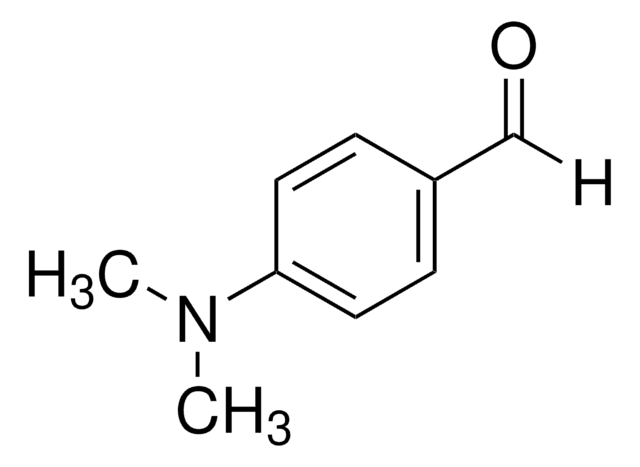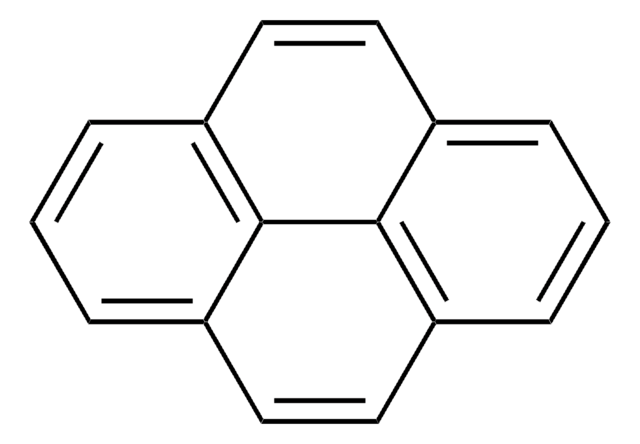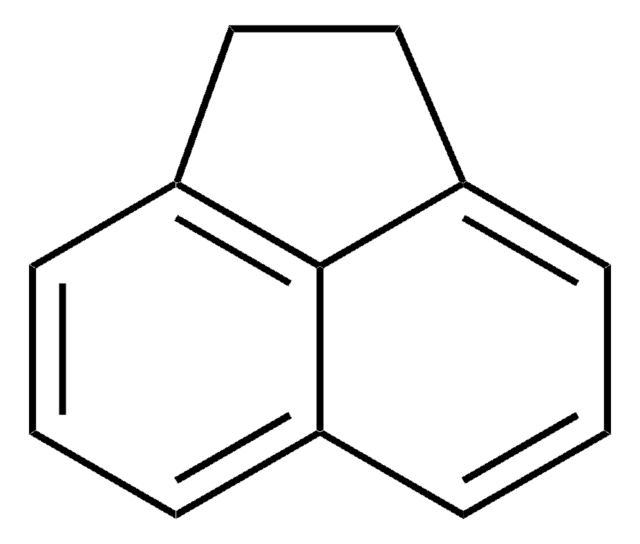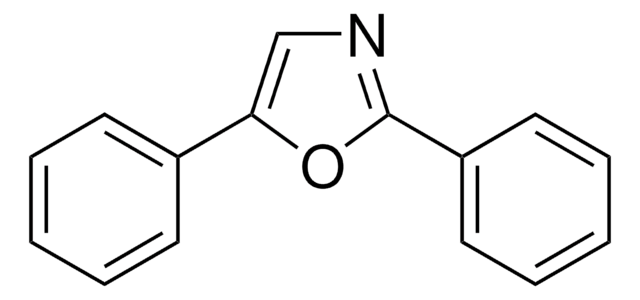10580
Anthracene
suitable for scintillation, ≥99.0% (GC)
Synonym(s):
Anthraxcene, Paranaphthalene
About This Item
Recommended Products
vapor density
6.15 (vs air)
Quality Level
vapor pressure
1 mmHg ( 145 °C)
Assay
≥99.0% (GC)
form
powder or crystals
autoignition temp.
1004 °F
sublimation residue
≤0.1%
bp
340 °C (lit.)
mp
210-215 °C (lit.)
214-216 °C
solubility
alcohols: soluble
benzene: soluble
chloroform: soluble
hydronaphthalenes: soluble
supercritical carbon dioxide: soluble
fluorescence
λex 251 nm; λem 401 nm in acetonitrile
suitability
suitable for scintillation
SMILES string
c1ccc2cc3ccccc3cc2c1
InChI
1S/C14H10/c1-2-6-12-10-14-8-4-3-7-13(14)9-11(12)5-1/h1-10H
InChI key
MWPLVEDNUUSJAV-UHFFFAOYSA-N
Gene Information
human ... CYP1A2(1544)
Looking for similar products? Visit Product Comparison Guide
Application
Quantity
related product
Signal Word
Warning
Hazard Statements
Precautionary Statements
Hazard Classifications
Aquatic Acute 1 - Aquatic Chronic 1 - Eye Irrit. 2
Storage Class Code
11 - Combustible Solids
WGK
WGK 2
Flash Point(F)
249.8 °F - closed cup
Flash Point(C)
121.0 °C - closed cup
Personal Protective Equipment
Regulatory Listings
Regulatory Listings are mainly provided for chemical products. Only limited information can be provided here for non-chemical products. No entry means none of the components are listed. It is the user’s obligation to ensure the safe and legal use of the product.
EU REACH SVHC Candidate List
Choose from one of the most recent versions:
Already Own This Product?
Find documentation for the products that you have recently purchased in the Document Library.
Customers Also Viewed
Our team of scientists has experience in all areas of research including Life Science, Material Science, Chemical Synthesis, Chromatography, Analytical and many others.
Contact Technical Service